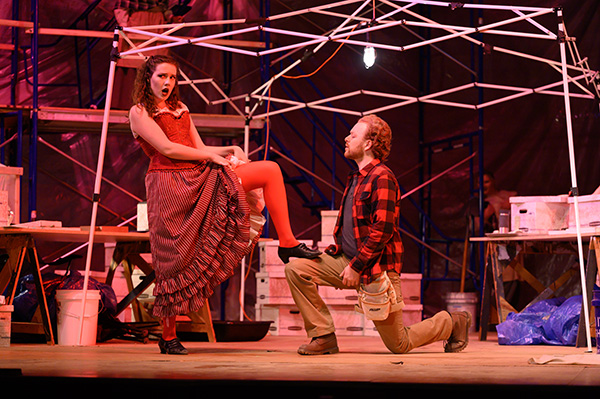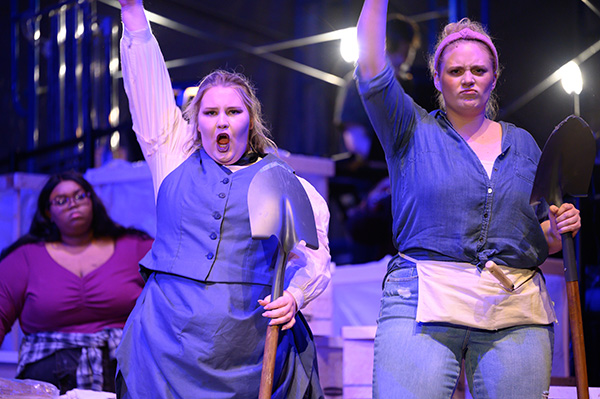by Mike Telin
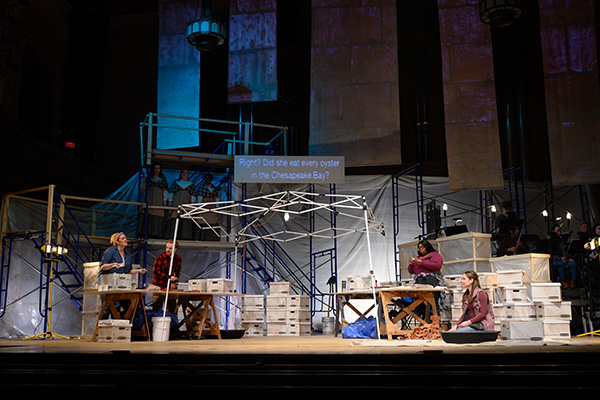
The scene takes place at an archaeological dig in Philadelphia. At this site in 1880, a woman named Alice Tierney was found dead, hanging from a fence by her petticoats.
While the mysterious death of the real-life Alice could have become fodder for a made-for-television cold case mystery where everything is neatly wrapped up in sixty minutes, composer Melissa Dunphy and librettist Jacqueline Goldfinger resisted that temptation. Instead, they chose to create a sixty-minute emotional roller coaster ride that follows four archeology graduate students as they attempt to discover the truth about Alice’s demise.
The opera was commissioned by Oberlin Conservatory’s Opera Commissioning Program and a 2020 Discovery Grant from OPERA America.
The opera wastes no time introducing the four protagonists — John, Quinn, Zandra, and Lyra — who, in spite of their efforts, are having little success in unearthing anything tangible that will help in creating a profile of Alice. Bricks, cow bones, a pipe stem, broken glass, and oyster shells are all they find as three Alices observe from above.
As insights into each character are revealed the opera quickly asks the question — how do each person’s motivations and implicit biases influence how they see Alice. And which of the four is best suited to tell her story.
Director Christopher Mirto’s staging is inspired — a thoughtful mix of fast action and muted contemplation. Every movement advances character development as the four graduate students each evolve into grand manipulators of their own Alices.
Jon Motes was both a sympathetic and repugnant John. Try as he might to fully acknowledge the benefits that male privilege has afforded him — “Someone has to make the choice, Why not me?” — in the end his Alice (Mae Alice Harrell) becomes a temptress. “You said you knew me. Or am I just a reflection Of your desires?” Then, in a fit of toxic masculinity, he forces himself on her.
Quinn (Jordan Twadell), swearing off her middle class background, shouts, “I swore I would never work in a kitchen. Never come home with my work on my hands. I read while my roommates got drunk…. I’m getting my PhD, goddamnit.” She and her Alice (Kylie Buckham) vow to rise above the dominance of white men. “We’re the Riot Girls and we’re the female Black Panthers…We scream for liberation because we will not be bowed.”
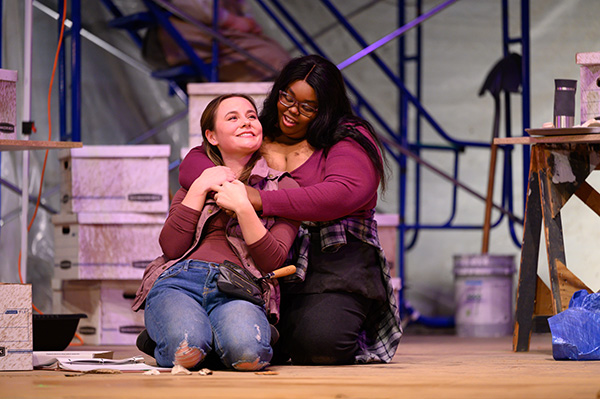
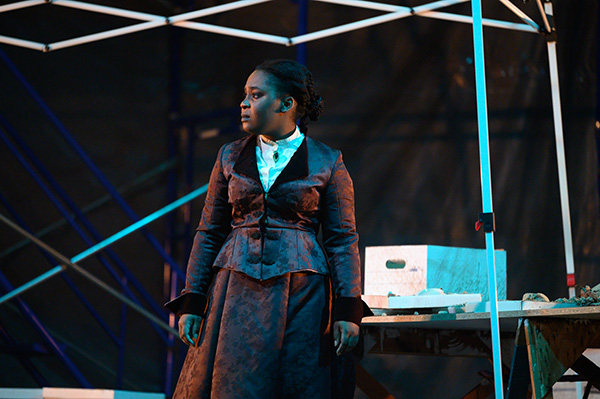
Without great singing actors you don’t have opera, and this young cast was phenomenal across the board. Each embodied their character with fervor. Vocally, they were superb — diction was clear, their conversations convincingly real.
Jacqueline Goldfinger’s libretto is never overly wordy, allowing each vocalist to make the characters their own. Melissa Dunphy’s score is a magical mix of styles that supports each change of emotion. Dunphy also leaves plenty of room in the score for the vocal lines to project over the music. Conductor Benjamin Martin kept a watchful eye on the proceedings, never letting tempos rush or bog down. The small, well-balanced orchestra added just the right amount of poignancy and color.
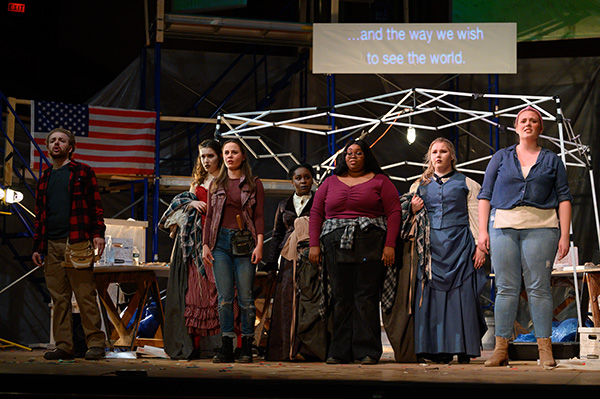
Although the opera does suggest more questions than it answers, that is part of its attractiveness: it causes us to think. To take an honest look at ourselves. And if we do, just perhaps, as the final chorus implies, there is hope for the future.
Photos by Yevhen Gulenko.
Published on ClevelandClassical.com February 16, 2023.
Click here for a printable copy of this article



